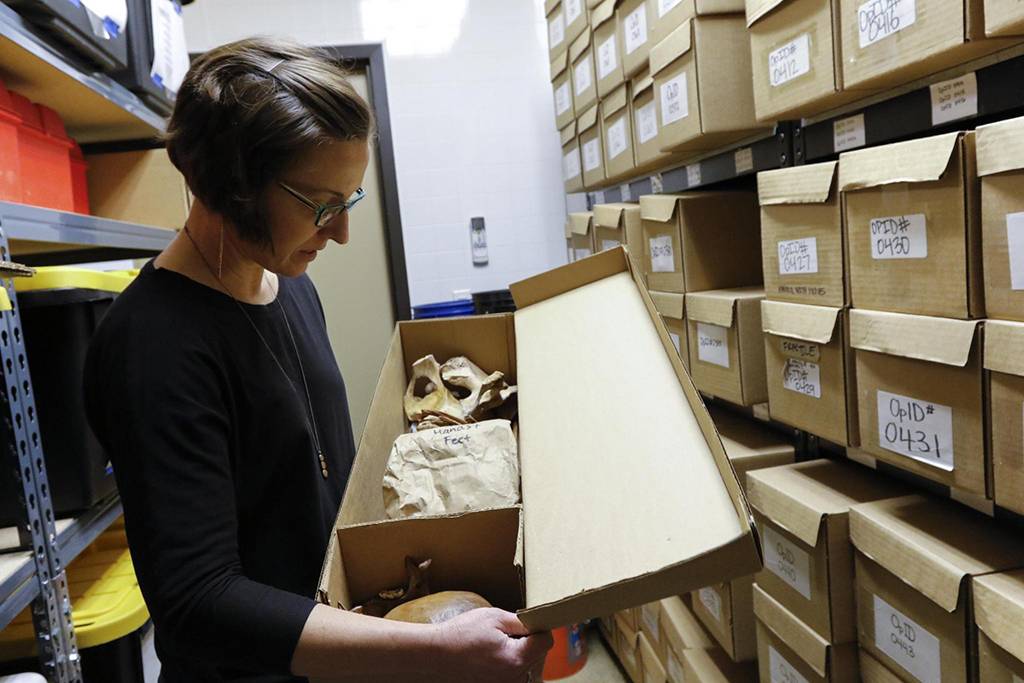Jayme Blaschke | January 27, 2023


Kate Spradley, a professor of anthropology with the Forensic Anthropology Center (FACTS) at Texas State University, has received a $1 million grant in support of Operation ID (OpID) from the Bureau of Justice Assistance in the U.S. Department of Justice to fund reporting, identification and repatriation of unidentified migrant remains in Texas border counties.
Other members of the grant team include Michelle Hamilton, associate professor in the Department of Anthropology, Nicholas Herrmann, associate professor in the Department of Anthropology, and James Fancher, forensic dentist with FACTS. The grant will allow OpID to expand the scope of its mission of facilitating the identification of unidentified human remains found in South Texas.
Operation ID will undertake two goals under the grant. The first is a comprehensive inventory of unidentified human remains across multiple border jurisdictions in Texas with case consolidation at FACTS. This will be accomplished through expanding and expediting OpID services, including overall case management, to additional non-medical examiner jurisdictions affected by migrant deaths.
The second goal is to increase missing migrant case reports entered into the National Missing and Unidentified Persons System (NamUs). To accomplish this, OpID will enter into a contract with the South Texas Human Rights Center (STHRC) to increase identification and repatriation. STHRC operates a bilingual Missing Migrant Hotline and takes missing persons case reports through an agreement with the Brooks County Sheriff’s Office, but STHRC cases are not currently entered in NamUs. The OpID contract is expected to close that gap.
Texas has led the nation in migrant deaths since 2012 and OpID has been assisting local jurisdictions in South Texas with unidentified human remains since 2013. OpID provides anthropological analysis, submits DNA evidence for inclusion in the FBI’s Combined DNA Index System and enters cases into NamUs. In 2016, OpID began exhuming the remains of presumed migrants who had been buried without autopsy or DNA sampling. OpID also assists counties with case management through established memoranda of understanding, interagency collaboration and communication with law enforcement and Justices of the Peace, who hold jurisdictional authority over unidentified remains in counties that lack a medical examiner.
Since 2013, OpID has managed more than 400 unidentified human remains cases primarily from five border counties impacted by migrant deaths and has helped facilitate—following all state laws and codes—65 identifications, with 20 identifications in 2022.
Share this article
For more information, contact University Communications:Jayme Blaschke, 512-245-2555 Sandy Pantlik, 512-245-2922 |
